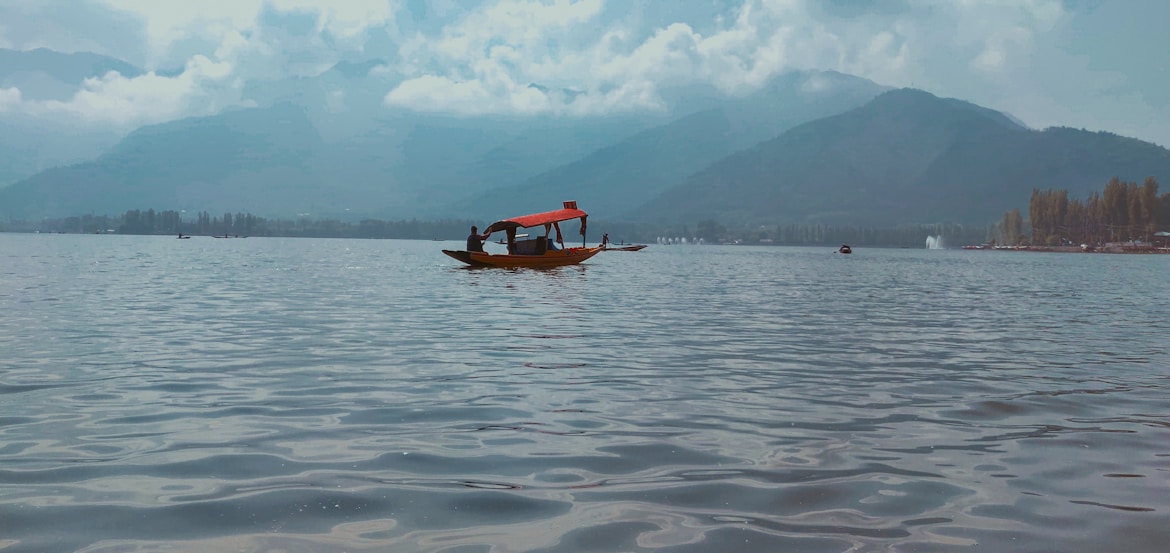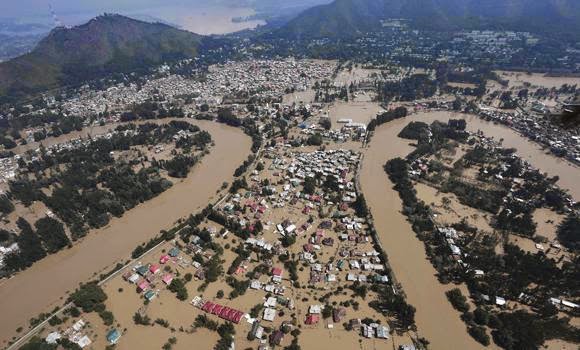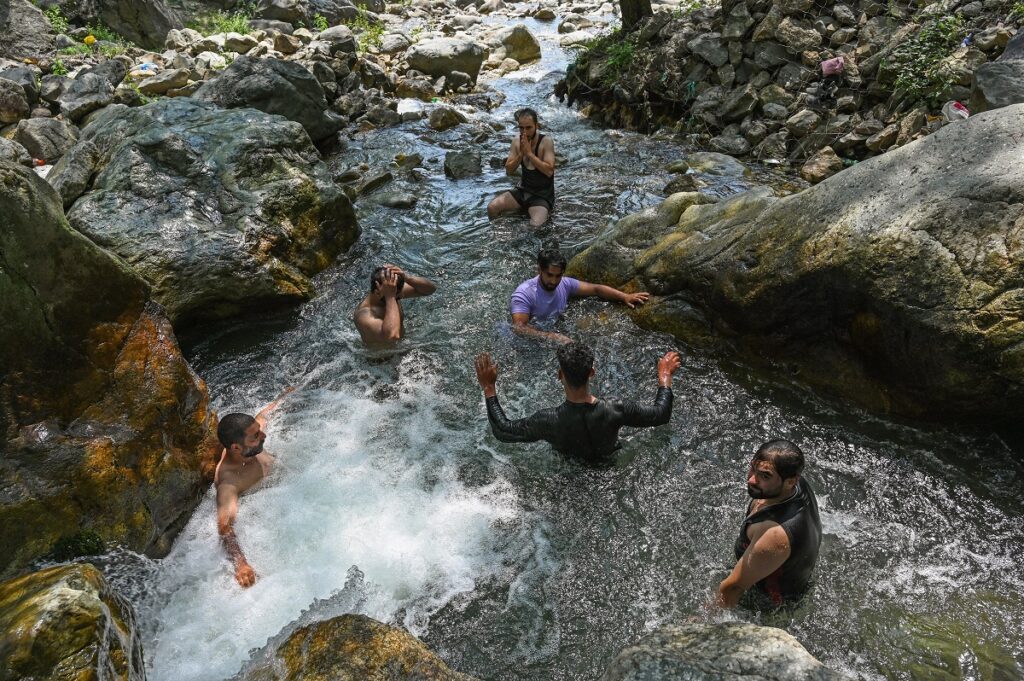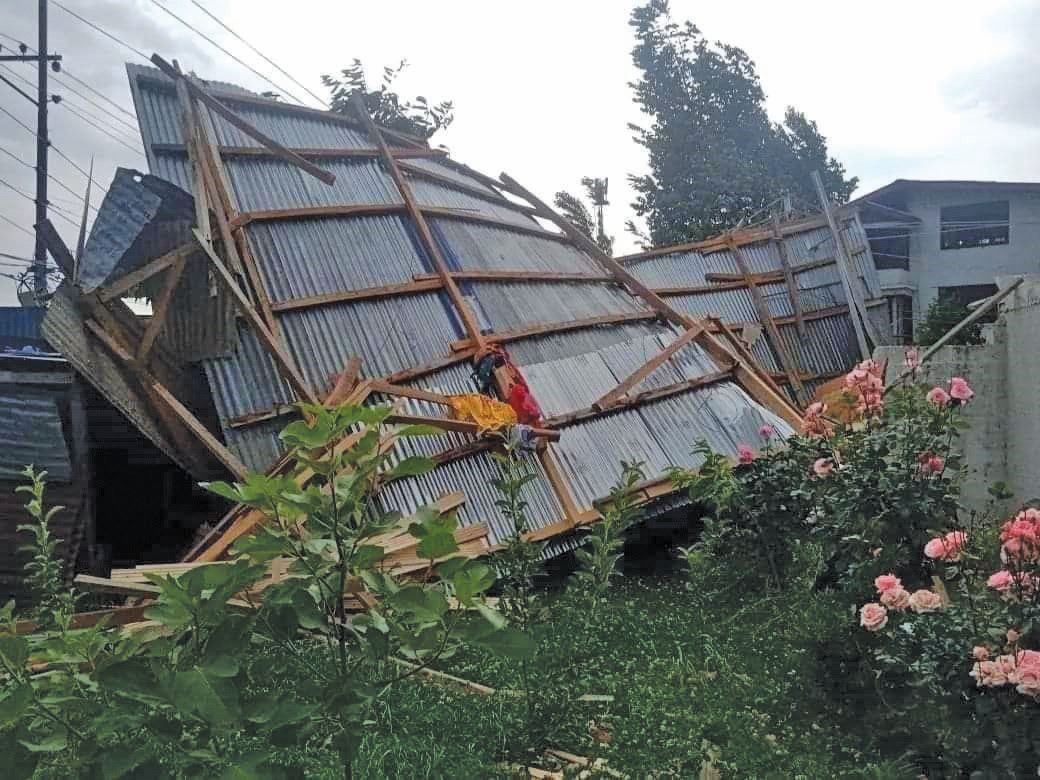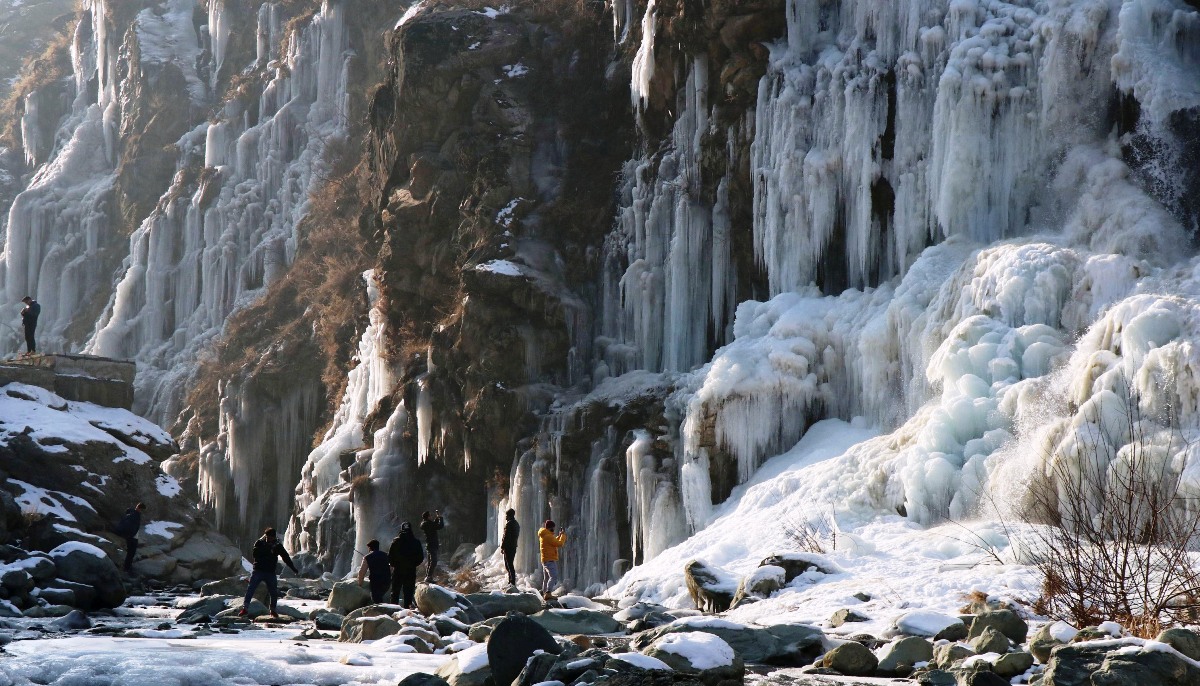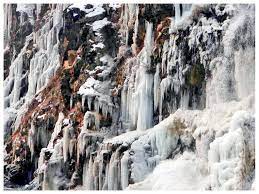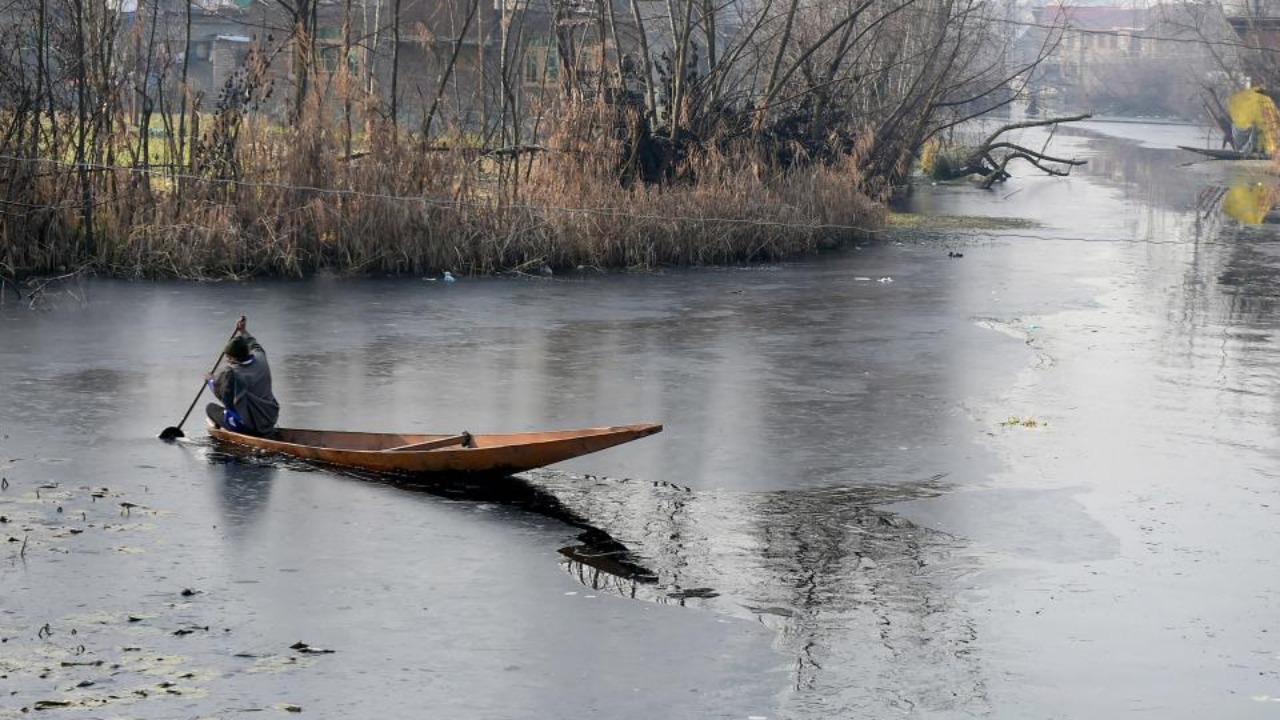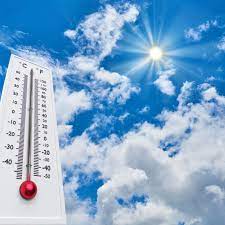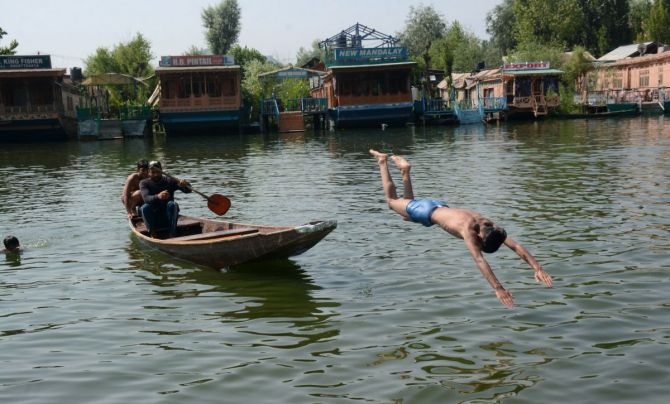From Doda to Leh: Himalayan Districts Reel Under Record-Breaking Rain By: Javid Amin | 01 Sep 2025 A Monsoon Like No Other August 2025 will be remembered as the month when the skies unleashed unprecedented fury over the Himalayas. Jammu & Kashmir recorded 319.3 mm rainfall in August — a 73% surplus, the 6th wettest August since 1901. Ladakh, usually known for its arid cold desert, was drenched — a 930% surplus, with Kargil receiving 1,530% above normal rain. These are not just numbers. They mark a tectonic shift in…
Read MoreTag: #ExtremeWeather
Kashmir Valley Flood Watch 2025: Rising Waters, Rising Fear in Srinagar as 2014 Nightmare Haunts Residents
Kashmir’s Rain-Soaked Wounds By: Javid Amin | 28 Aug 2025 The Kashmir Valley, often called “Paradise on Earth,” is once again battling the fury of nature. Relentless rains have pushed rivers and nallahs close to critical levels, sparking widespread fear and anxiety, especially in Srinagar city. For many residents, the downpour is not just about water—it’s about memory. The 2014 floods, which devastated Srinagar and left entire neighborhoods submerged, still haunt collective memory. Now, as the Jhelum River swells and tributaries surge, people fear history may be repeating itself. River…
Read MoreUnprecedented Heatwave in Kashmir: What’s Causing the Temperature Spike?
Heatwave Sweeps Kashmir as Srinagar Records Hottest Day of the Season Srinagar 22 May 2025: Kashmir, known for its cool climate and picturesque landscapes, is currently experiencing an unprecedented heatwave. The soaring temperatures have disrupted daily life, affecting agriculture, tourism, and public health. Srinagar, the summer capital of Jammu and Kashmir, recorded its hottest day of the season at 32.2°C, marking a significant deviation from the usual weather patterns. The heatwave has extended across the region, with Qazigund touching 33.0°C, Kokernag at 31.4°C, and Pahalgam at 27.2°C. Even Gulmarg, a…
Read MoreSudden Fury: Unseasonal Hailstorm Wipes Out Crops in Kashmir’s Gurez Valley
White Wrath in Gurez: Heavy Hailstorm Devastates Crops Bandipora 19 May 2025: A severe hailstorm struck Gurez and surrounding villages, leaving a trail of destruction across agricultural lands. Locals in Onagam and nearby areas reported that the hailstorm lasted several minutes, causing significant damage to crops. Impact on Agriculture & Livelihoods Maize, peas, and potatoes—staple crops of the region—have suffered extensive damage. Farmers fear financial losses, as the hailstorm has destroyed harvest-ready produce. Black cumin, a prized crop in Gurez, has also been affected, raising concerns about economic setbacks. Climate…
Read MoreFierce Winds Tear Through Kashmir: Uprooted Trees, Traffic Disruptions & Safety Measures
Gusty Winds Lash Kashmir, Causing Widespread Damage Srinagar 19 May 2025: Kashmir was hit by strong gusty winds and rain, causing significant damage across multiple districts. Winds reaching speeds of 35-45 kmph uprooted trees, disrupted traffic, and damaged rooftops in Srinagar, Budgam, Baramulla, and Bandipora. Severe Weather Causes Chaos The storm led to blocked roads, power outages, and structural damage. In Tangmarg and Chandilora Market, several residential houses suffered extensive damage, with rooftops either partially or completely blown off. Baramulla witnessed multiple roadblocks due to fallen debris, making movement difficult.…
Read MoreKashmir Endures Intense Cold Wave: Srinagar Plunges to Minus 7°C
Kashmir reels under intense cold wave conditions; Srinagar recorded a low of minus 7 degrees Celsius on Wednesday night Srinagar, Dec 26: Intense cold wave conditions prevailed across Kashmir as the minimum temperatures settled several degrees below the freezing point, officials said on Thursday. There is a possibility of light snowfall over the higher reaches on Friday and Saturday as a Western Disturbance is set to impact the region, they said. The night temperature dropped at most places in Kashmir as the valley continued to reel under freezing conditions. The fall…
Read MoreBreaking Records: Srinagar’s Coldest Night in 24 Years
Srinagar Shivers: Record-Breaking Cold Brings Life to a Standstill Srinagar 21 Dec: The picturesque valley of Srinagar has always been a winter wonderland, but this year, it turned into an icy ordeal. The city recently experienced its coldest night in 24 years, with temperatures plunging to a bone-chilling -8.5°C. This extreme weather, part of the infamous 40-day winter period known as ‘Chillai-Kalan,’ has transformed the daily lives of locals and made survival a challenge. In this article, we’ll delve deeper into the causes, effects, and historical significance of this record-breaking…
Read MoreKashmir in Grip of Severe Cold Wave, Minimum Temperatures Plummet
Minimum temperatures in several parts of Kashmir have dropped below the minus three degrees Celsius-mark as a cold wave sweeps the region. Kashmir is currently in the grip of “Chilla-i-Kalan”, a 40-day harsh winter period, when temperatures drop considerably leading to freezing of water bodies, including the Dal Lake, as well as water in supply lines. The chances of snowfall are the highest during this period and most areas, especially the higher reaches, receive heavy snowfall. “Chilla-i-Kalan” will end on January 31 and will be followed by the 20-day “Chilla-i-Khurd”…
Read MoreClimate change to bring more extreme weather events to Kashmir, including September heatwaves
By: Wahid Bhat Kashmir is currently experiencing an unprecedented heatwave in September, shattering long-standing temperature records due to an ongoing dry spell that has persisted for the last 45 days. Srinagar, on September 12th, recorded a scorching maximum temperature of 34.2°C, a staggering 6.0°C above the normal seasonal average. This marks the second-highest maximum temperature ever recorded in September since the establishment of the weather observatory in 1891. The previous record of 33.8°C dated back to September 1, 1970, with an all-time high of 35.0°C set on September 18, 1934.…
Read MoreKashmir Heat Wave Worsens, Leaves Locals and Tourists Struggling
Kashmir is reeling from a heat wave after the valley earlier this week witnessed the second-hottest September day in recorded history, causing hardships to locals and tourists alike. On Tuesday, Srinagar recorded a maximum temperature of 34.2 degrees Celsius, six degrees above normal, the met office (Srinagar) deputy director Mukhtar Ahmed told PTI. He said it was the second-highest maximum temperature ever recorded in September since 1891, when the weather observatory was established. Ahmed said it broke a 53-year-old record of 33.8 degrees Celsius, recorded on September 1, 1970. The…
Read More
